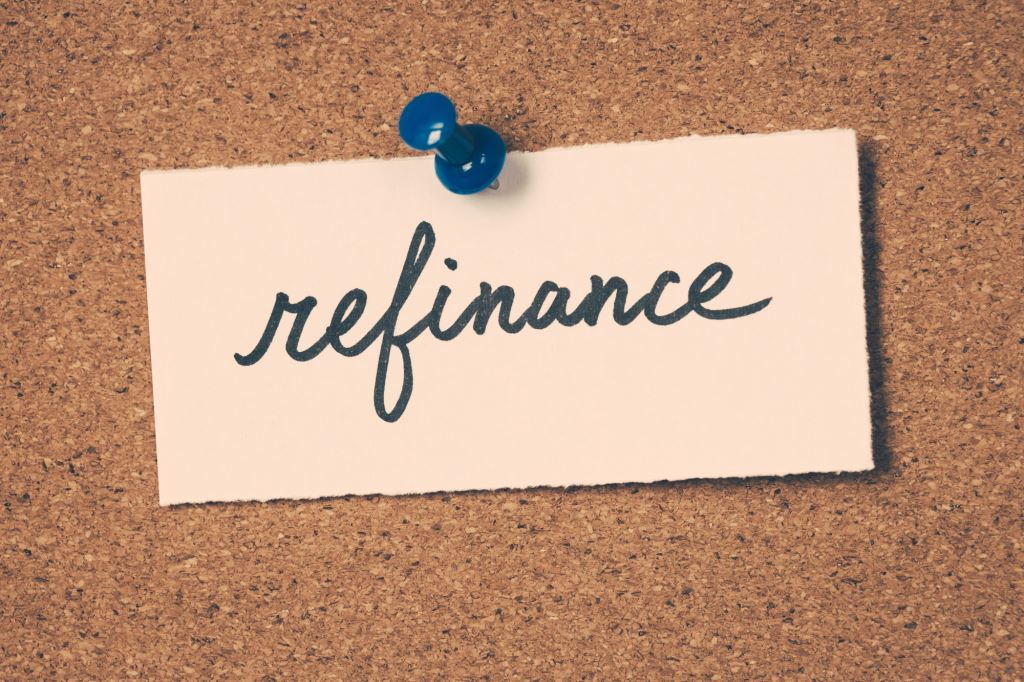Mortgage rates are still way above the 2% we had earlier in 2021. But there’s still a chance you’ll get cheaper interest rates and more affordable monthly payments. It’s called refinancing.
If you’re wondering when to refinance a mortgage, keep reading to learn more about the process.
When to Refinance a Mortgage
Let’s say you’re a homeowner who just scored a sweet refinance deal on your mortgage. You’ve secured a new loan at a lower rate and can’t wait to start pocketing more cash each month.
But did you think about the opportunity costs? If you didn’t finance at the right time, all your savings will go towards new, unforeseen expenses.
Here’s how to figure out the best time for mortgage refinancing so you don’t end up making a costly mistake.
Reducing Your Monthly Payments
Perhaps you’re facing major expenses, like sending a kid off to college or redoing your kitchen. Either way, you can apply for a new loan with a lower interest rate. This will lower your mortgage payments and give you the means to cover other fees each month.
Change to a Fixed Mortgage
Although you might score a great deal with an ARM, your monthly payments can rise at any time. Going for a fixed-rate loan will save you from unpredictable rate changes down the line.
Consolidation
If you’re stuck with loads of high-interest debt from credit cards or student loans, refinancing can be a great way to make it go away. Your interest rates might decrease, and you can make your payments over a longer period.
How Long Should You Wait to Refinance a Loan?
The average borrower would have to wait a few months after they got their first loan to refinance. Some banks are tougher than others when it comes to their refinancing requirements. You can get a better deal if you wait longer.
What Are the Risks of Refinancing?
The biggest downside of refinancing is a decrease in your home’s equity. If you refinance to get a lower rate, then you may have to pay more in interest over the life of the loan.
It also takes a lot of effort to refinance. You need to find a lender, gather the necessary paperwork, and complete the application. This can take several weeks.
There’s also the possibility of your monthly payments increasing, depending on what type of mortgage product is available at that time.
And finally, you’ll have to pay closing costs. Closing costs can be thousands of dollars and include fees for the lender, an appraisal, and title insurance.
Will Mortgage Rates Go Down in 2023?
Real estate authorities say mortgage rates will average around 3% for cash rates until the end of the year. For variable loans, they think it’ll rise to around 6%.
How Many Times Can You Refinance Your Home?
Homeowners can refinance their mortgage as often as their lender allows. But, like any other money-related choice, you should figure out if it’s right for you.
If interest rates decrease, refinancing might end up being a smart financial move. And if you’re planning on moving soon, refinance before you sell your home. That way, you can have a lower mortgage payment and more money in your pocket to buy a new home.
Refinancing Requirements
Your credit score should be somewhere between 580 and 680, but it can vary depending on who you’re borrowing from and what kind of loan you’re looking for. Mortgage lenders will also need proof that you’re earning enough money to handle your new mortgage.
Be prepared for a credit check as well. If you’re late on any bills, refinancing won’t be an option for you.
On top of that, your DTI ratio better not be too high. It’s best if it’s under 50%. But there might be some wiggle room if your credit is solid and you’re not a first-time homebuyer.
Sometimes you’ll have to submit an appraisal to show that your home is worth what you say it is. If you’re thinking of refinancing when your equity is low, you can still make it happen. But it might be tough to find a lender who’ll back your application.
Can a Self-Employed Person Refinance Their Home?
If you’re working for yourself, you can still get your property refinanced. The catch is, you need additional documents to prove you’re earning enough money to afford the new mortgage.
For starters, you’ll need to show two years’ worth of tax returns along with other financial records like bank statements, earnings statements, and balance sheets. All of this will help the lender figure out your debt-to-income ratio and decide if you’re qualified to refinance.
Remember that refinancing isn’t as simple for freelancers as it is for the regular nine-to-fivers out there. It’s best to team up with a lender who’s had prior experience working with self-employed borrowers. Low Doc Loans is an example of a lender that specializes in this area, but there are other options.
Make Smart Decisions With Your Home Loans
When to refinance a mortgage? Whenever it’s going to put more cash in your pocket.
Don’t let some pushy sales agent or loan shark talk you into it. Make choices based on hard facts like your current interest rate and changes to loan terms.
Our lifestyle reads can help you make smart choices when it comes to life-changing decisions like this. Check out our articles on finances, buying a house, and other juicy topics.




